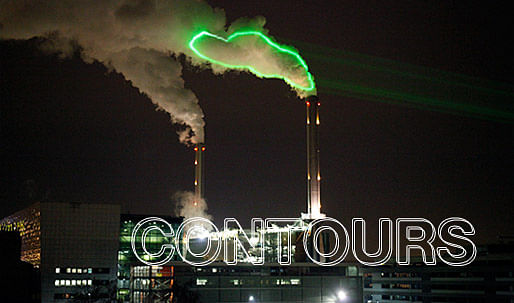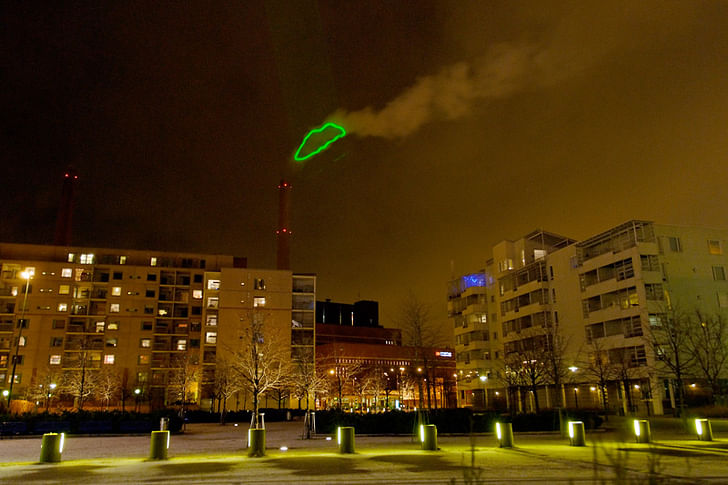

Whither goest thou, America, in thy shiny car in the night?
--Jack Kerouac
Did you tune into Obama’s jobs speech last Thursday night? Hopefully, you were too busy putting in unpaid overtime at your office. Or maybe you didn’t give a damn because you’ve been out there looking for a job, shooting your portfolio into a black hole for months and months.
If you did tune in you probably noticed that the word “green” was conspicuously absent.
Did Obama forget about the green economy he has been touting since his campaign? This is a deliberate and strategic move to move away from an over-emphasis on green as the key to economic recovery.
As a pragmatist, he understands that for the immediate future green is not yet a big enough factor to have a significant impact on jobs. Is this about failed leadership, as recent articles in Forbes and The New York Times suggest? Or is it really about a failure at the core of our culture? Perhaps it’s trying to do too much with too little too soon. If the Obama administration is guilty of anything it is of being too optimistic and, yes, hopeful. The culture, with all of its working and non-working machinery, was not ready for big green to be pushed into the mainstream.
Let’s go way back to 2008-2009. Remember the green economy, green jobs, green infrastructure? Remember Van Jones, then head of Oakland’s Green for All, being appointed Obama’s green jobs czar? Did anyone notice that? Many of us with green tendencies were in a state of rapture. We could see it coming around the corner, gaining an edge on those melting polar caps. Even Al Gore seemed happy.

The speech, besides trying to not draw too much attention to all the missteps and failures that have plagued the Administration’s green initiatives, also signals a shift away from the state-sponsored green euphoria that may have led to those failures in the first place.
It stresses a more pragmatic approach rooted in the fundamentals of broader and deeper economic forces. This is the sort of pragmatism the business world has been embracing as it tackles the issue of green. Just take a look at Greenbiz.com, for example.
Green has not yet attained the status of a core principal in American culture. To achieve this it has to be pragmatic. We may shop green, but we do not live it. No, not yet. Not when entire voting blocks and their leaders still question the validity of climate change.
To become intrinsic to our culture the green movement has to be framed in solid and irrefutable economic terms. Had Van Jones had not been pushed out by conservative opponents it’s possible the Obama camp would have had more ammunition to fight the green fight on the economic and policy front. However, one suspects that Van Jones, for all his experience in this arena, did not possess all the answers. Applying a local NGO model to a national scale in the midst of an economic crisis is bound to lead to failures. But the failures are important in moving the conversation onto the national stage.
When green gets pushed to the forefront of the political and economic agenda what is revealed is the systemic inability of our culture and political system to actualize it on a mass scale. It’s still largely grassroots, point by point, measure by measure, and for architects, building by building. But someone had to push it to the national level and Obama has succeeded in making this part of the mathematics of the economy. Despite the short-term failure of the so-called green economy, it will be a key issue in the 2012 elections and will remain part of the economic debates.
Maybe Americans aren’t the ones building the solar panels. We can’t do it cheap enough. But we can be the ones installing them, designing better, more efficient ones, designing them as integrated into our architecture. In the meantime we have to fight the economic fight, convince people that green works…even if it hasn’t put us all to work just yet.
Next week: How the Great Recession has helped redefine what a green economy means.
Guy Horton writes on the business, politics, and culture of architecture. He is a frequent contributor to Metropolis, GOOD, Architectural Record and other design publications. His new book, co-authored with Sherin Wing, is titled, The Real Architect's Handbook. You can follow Guy on Twitter @guyhorton.
Guy Horton is a Los Angeles writer and author of the critical blog, The Indicator on ArchDaily.com, which covers issues ranging from the culture, politics, and business of architecture to theory and aesthetics. He is a frequent contributor to The Architect's Newspaper, The Atlantic Cities ...
5 Comments
After the epic failure of Solyndra it would be hard for Obama to mention the word "green" again. I believe he is still passionate about the subject but with the Republicans dancing around the ashes of Solyndra it looks like a tough task.
China invests 30$ billion in renewable energy, Saudi Arabia 100$ while the US is falling behind. Europe is leading the world after China when it comes to switching to green energy. especially Germany...Germany competes with China in manufacturing solar panels and they do hell of a good job. Here: http://www.washingtonpost.com/wp-dyn/content/article/2007/05/04/AR2007050402466.html
I don't think cost is an excuse to totally opt out of manufacturing renewable energy products in the US.
"we can be the ones installing them, designing better, more efficient ones, designing them as integrated into our architecture. " I totally agree with this. The political climate and the lack of government support is the biggest obstacle in developing green energy products in the States. Not only that but in a lot of places they don't even allow people to produce their own energy. I've heard so many horror stories where people were forced to evict their homes because they were living off the grid. I think we should first begin with educating people about the environment and the alternative energy options, increase marketing. I'm interested in living off the grid myself but even just installing solar panels, putting residential wind turbines and creating a small space to grow your own food would make a lot of difference.
Guy, relevant to your piece (looking forward to installments), things on top are a bit murky right now. Looks like whatever life left in the political idea of it might be effectively crushed with:
House probing $528M loan to failed solar company.
Everybody knows how these scandals are spinned with special political interest groups.
Devil's advocate here, but...
...why would we expect a country where energy is fundamentally cheap and plentiful to be the leader in creating a new kind of energy? (Especially without significant subsidies.)
mixmaster - traditional fossil fuel energy is already heavily subsidized in the US (and the chart only shows direct spending and tax breaks, not other indirect subsidies) - therefore artificially cheap. but you're right - we cannot become a leader unless we either end or significantly decrease these subsidies.
Double subsidy, all the way!
It's a shame we have such a Frankenstein's monster of policies, instead of a targeted set of subsidies that achieve desired results. We'd avoid unnecessary reduplication - like subsidizing energy to make it cheap, and then subsidizing the production of new sources of energy because it's not price-competitive to develop them.
Block this user
Are you sure you want to block this user and hide all related comments throughout the site?
Archinect
This is your first comment on Archinect. Your comment will be visible once approved.